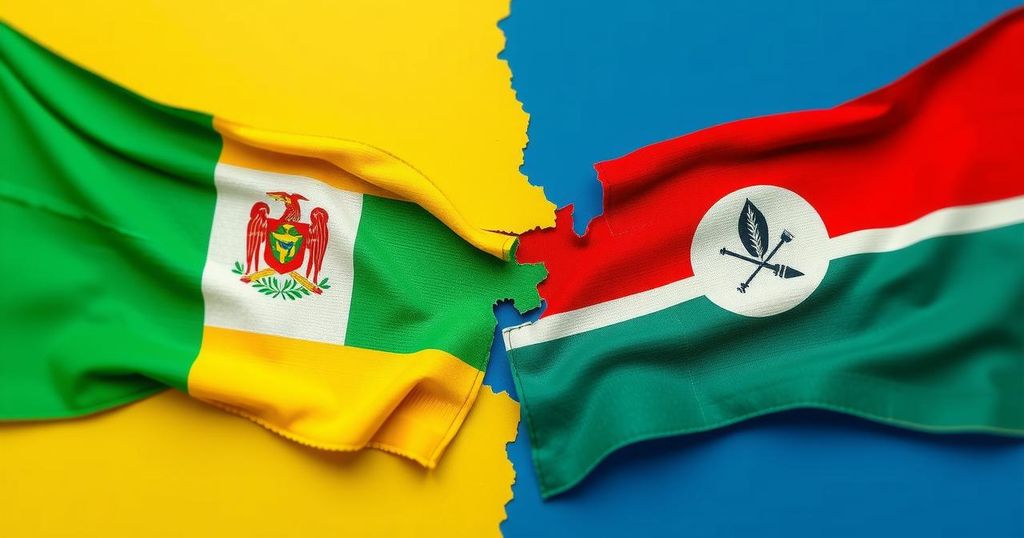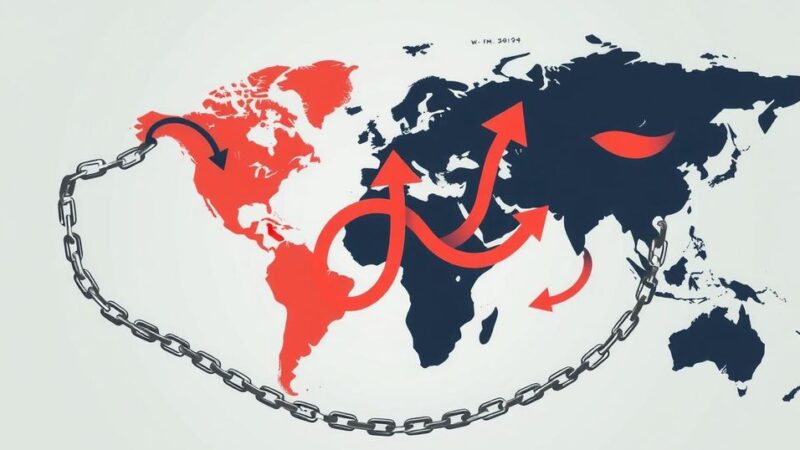Kenyan and Ugandan presidents will mediate a dispute between Ethiopia and Somalia, which escalates tension in the Horn of Africa. The conflict relates to Ethiopia’s plans for a port in Somaliland, angering Somalia. Both countries seek to stabilize the region, crucial for business and investment, amid failed previous mediations by Turkey.
In a significant diplomatic effort, Kenyan President William Ruto announced on Saturday that he and Ugandan President Yoweri Museveni would mediate the escalating dispute between Ethiopia and Somalia, which poses a risk of destabilizing the Horn of Africa. The tensions stem from Ethiopia’s controversial plans to construct a port in the breakaway region of Somaliland, leading to dissatisfaction from the Somali government. Ethiopia maintains a substantial military presence in Somalia as part of the fight against al Qaeda-affiliated groups, further complicating the situation.
Somaliland, which has been self-governing and relatively peaceful since declaring independence in 1991, seeks international recognition in exchange for collaboration on the port project. This dispute has propelled Somalia closer to Egypt—its long-standing rival of Ethiopia—amid ongoing tensions regarding Ethiopia’s construction of a massive hydroelectric dam on the Nile. During a regional summit, President Ruto emphasized the importance of Somalia’s security for maintaining stability in the wider region, which is crucial for fostering a conducive environment for investors and businesses.
Efforts to negotiate a resolution, including previous dialogue attempts in Ankara, Turkey, have not succeeded. Although Somali President Hassan Sheikh Mohamud met with Presidents Ruto and Museveni, details regarding their mediation efforts remain unclear. Meanwhile, Somalia’s Foreign Minister Ahmed Moallim Fiqi expressed skepticism about Ethiopia’s willingness to engage constructively, despite hopes for successful mediation from Turkey.
The ongoing tensions between Ethiopia and Somalia regarding the potential port development in Somaliland underscore a complex historical relationship influenced by territorial disputes and regional power dynamics. Somaliland, a self-declared independent region, has pursued international recognition since 1991 but continues to encounter obstacles. Ethiopia’s military involvement in Somalia is primarily aimed at countering extremism, yet this presence also enhances regional conflicts. Diplomatic interventions from neighboring countries like Kenya and Uganda reflect the broader concerns within the Horn of Africa regarding stability and potential economic implications for the region.
The initiative by Kenya and Uganda to mediate in the Ethiopia-Somalia dispute reflects the urgent need for dialogue to maintain stability in the Horn of Africa. Given the historical complexities and vested interests of various regional players, effective mediation could be essential to address grievances and prevent further escalation. However, the success of these efforts hinges on Ethiopia’s readiness to engage with its neighbors constructively. This situation remains critical as it impacts the security and economic prospects of the entire region.
Original Source: www.hindustantimes.com







